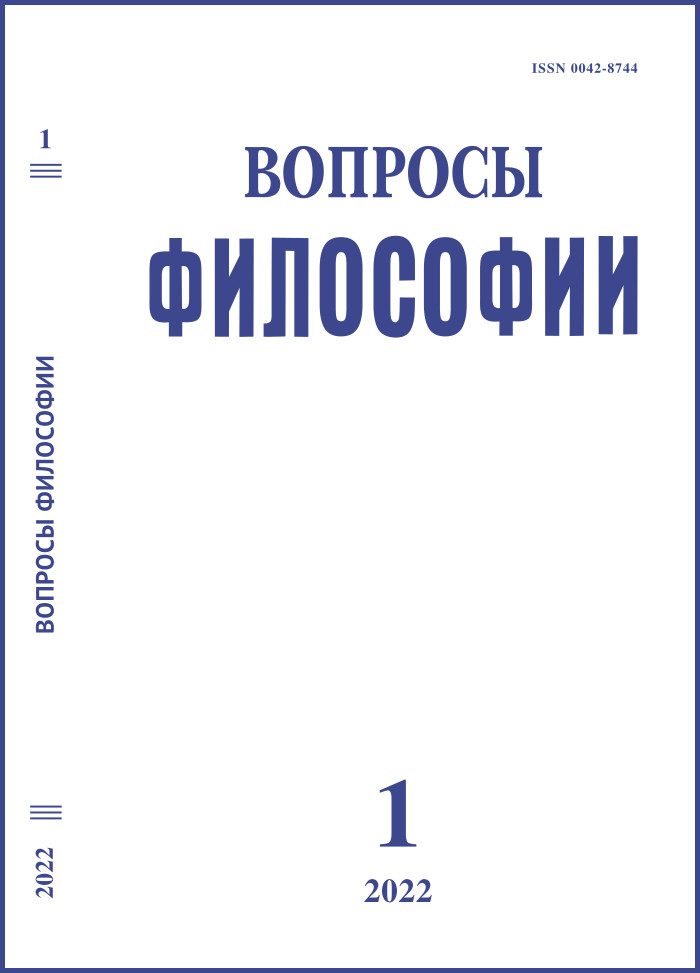Who Thinks Complexly in Modern Philosophy?
DOI:
https://doi.org/10.21146/0042-8744-2022-1-30-42Keywords:
ontology of nature, metahumanism, autopoiesis, complexity, consciousness, subjectivity, human, singular philosophy, sensorium, Moscow anthropological schoolAbstract
The article examines the philosophical foundations of the concept of complexity, within the framework of which an attempt is made to overcome Cartesian dualism and create a picture of the world that would allow a new look at the relationship between human and nature and build a holistic knowledge of being. But a holistic knowledge of the world provides a solution to the question of whether the world is one and homogeneous or, on the contrary, there are some fundamental gaps in it. If it is one, then what status does subjectivity have? If it is broken, then what is the status of holistic knowledge about it? The concept of complexity is compared with the ideas of singular philosophy of the Moscow Anthropological School, which suggests revising the concepts of subjectivity and subject, as well as consciousness and affect. In the framework of singular philosophy, subjectivity is understood not as what belongs to the subject, but as what the subject belongs to. And also this concept implies a complete rejection of the idea of the identity of substance and subject. The subject can be thought out of connection with the substance, and the substance is out of connection with the
subject. The subject in this case can be understood as a singular event. The understanding of complexity, transformed from the classical understanding of complexity, taking into account the mandatory position of the included observer, leads to a shift in the interpretation of the relationship between human and reality from spatial compatibility to temporal comprehension. At the same time, there is no complete rejection of the foundations of the metaphysics of the present, which is characterized by a spatial dominant.
Published
Versions
- 2025-02-06 (2)
- 2022-01-31 (1)

